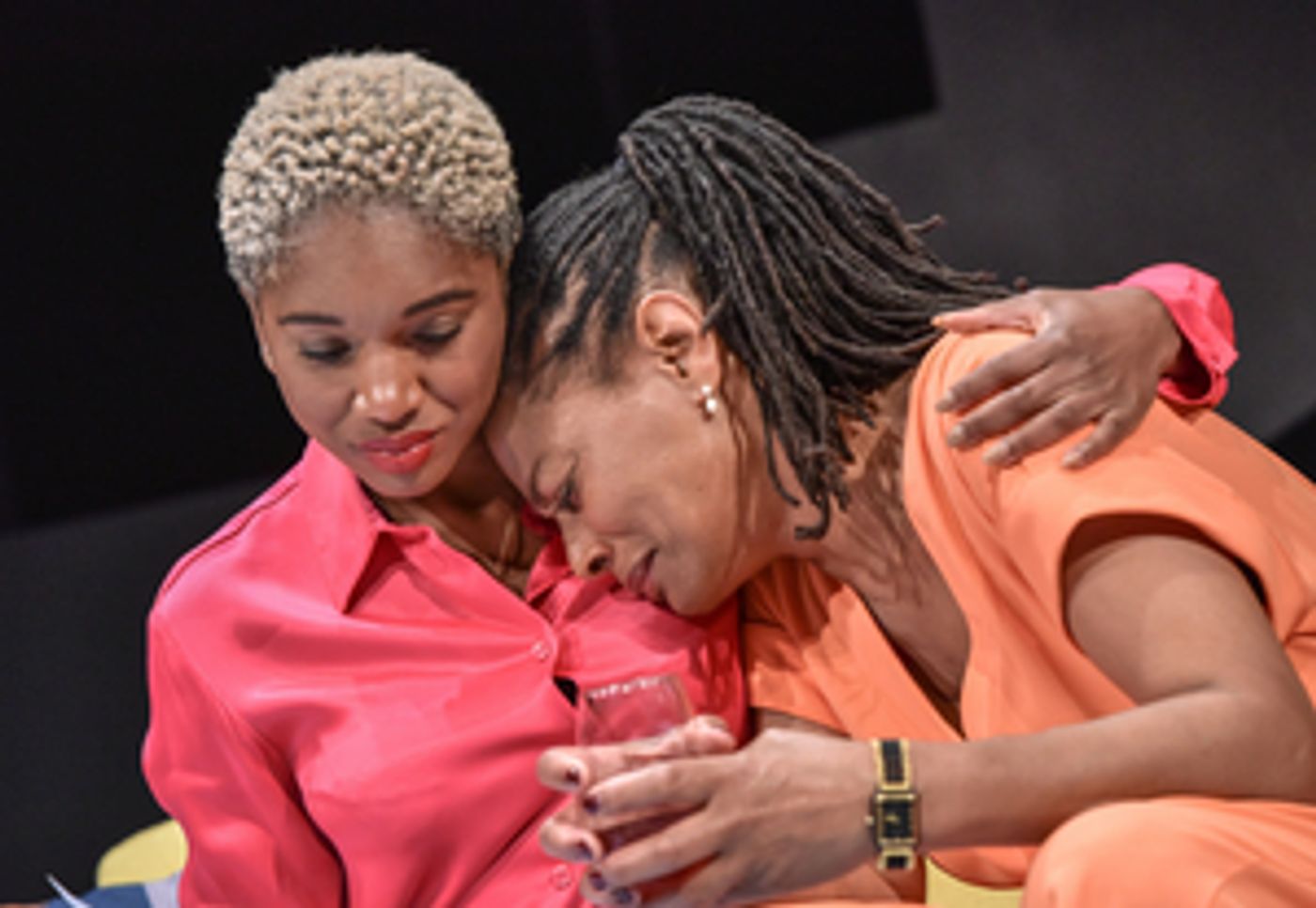Review: THE FELLOWSHIP, Hampstead Theatre
Roy Williams premieres a new play directed by Paulette Randall.

![]()
A week after Windrush Day saw Prince William and his wife visiting the National Windrush Monument at Waterloo Station, two children of the Windrush generation are at the heart of Roy Williams's new piece. Debuting at Hampstead Theatre, directed by Paulette Randall, it introduces sisters Dawn (Cherrelle Skeete) and Marcia (Suzette Llewellyn), who grew up as activists in 80s London.
Marcia has become a top-notch lawyer who's now having a dangerous relationship with a married politician. Dawn is bending over backwards to care for their dying mother and fighting her son Jermaine (Ethan Hazzard) from slipping away. The Fellowship is a patchy world premiere and an overly long play that beats around the bush whilst covering too many themes at once.
This said, Skeete is sensational from top to bottom. Having replaced Lucy Vandi a mere two weeks before press night, she struts on stage script in hand but barely uses it, easily giving the best performance of the evening. Dawn is a proud black woman who's grown wary about the white world outside her doors.
Skeete lets an air of martyrdom peek from her character when the discussion comes to their mother, then swiftly adjusts Dawn's approach in a spitfire of a role. She is confrontational and hostile when wronged or scorned, but loves and cares deeply behind a strong facade. In a hallucinated conversation with her dead mum (Yasmin Mwanza), she reveals the traumatic effects of a strict, uncompromising immigrant upbringing and an emotionally unreachable parent.
The hairline fractures between Dawn and Marcia crack wide open in the second act, then heal again. Llewellyn is the calm, collected half of the duo who breaks more easily. They share memories and jokes, almost speaking a language of their own. Llewellyn is softer as the older sister and tries to reason with Dawn, but she has a tendency to revert every issue onto herself.
Her affair with a white MP - brilliantly named Giles Mortimer - isn't too well received by Dawn, who's ultimately right in her judgement. The rest of the cast is equally impressive, but the roles tend to be sketched out with Tony (Dawn's partner, played by Trevor Laird) and Simone (Jermaine's girlfriend, Rosie Day). Hazzard becomes an astonishing foil to Skeete after the intermission. They share an intense, exploding scene that makes us wish the show held that standard of tension throughout.
The two hours and 45 minutes (with an interval) don't even start to scrape the ambitious line-up of themes, and they end up largely unexplored. Williams tackles the struggles faced by the Windrush generation alongside racial injustice, racially provoked murders, and generational differences to mention a few, all tied up in a family drama where past political activism stirs the pot and offers moral high-ground.
The conclusion is a bit shaky too and the audience breaking into applause at the wrong time with the action three scenes away from the finish line. In defence of the public, it would have been a great moment to pull the curtain. Williams, however, opts to tie up all the loose ends even though they don't necessarily need to be explained. He concludes on a high note, giving his characters a happy ending of sorts.
Designer Libby Watson sets the action in a snazzy, posh monochromatic living room with a concrete staircase that winds up at the back. Curves dominate the stage, with the centre enclosed by the blue right lights of an Amazon Alexa, which is almost a character itself. Music becomes an important element in the show, with many scenes revolving around the actors dancing along to pop music.
Randall plays with the push-and-pull of the script well, creating space for the characters to unwind before recharging them with the strain of their issues. Script-wise, it's not the tautest for Williams, but a few stunning performances and a, frankly, gorgeous design patch it up well.
The Fellowship runs at Hampstead Theatre until 23 July.
Photo Credit: Robert Day
Reader Reviews
Videos

